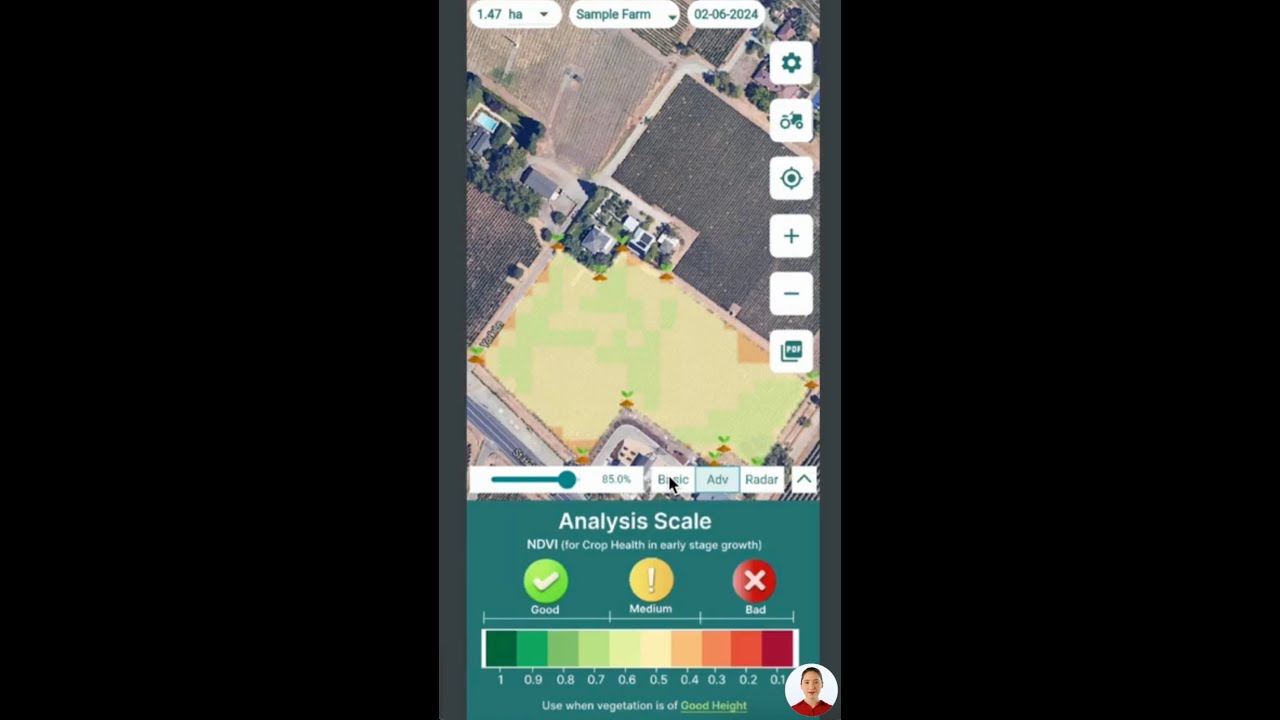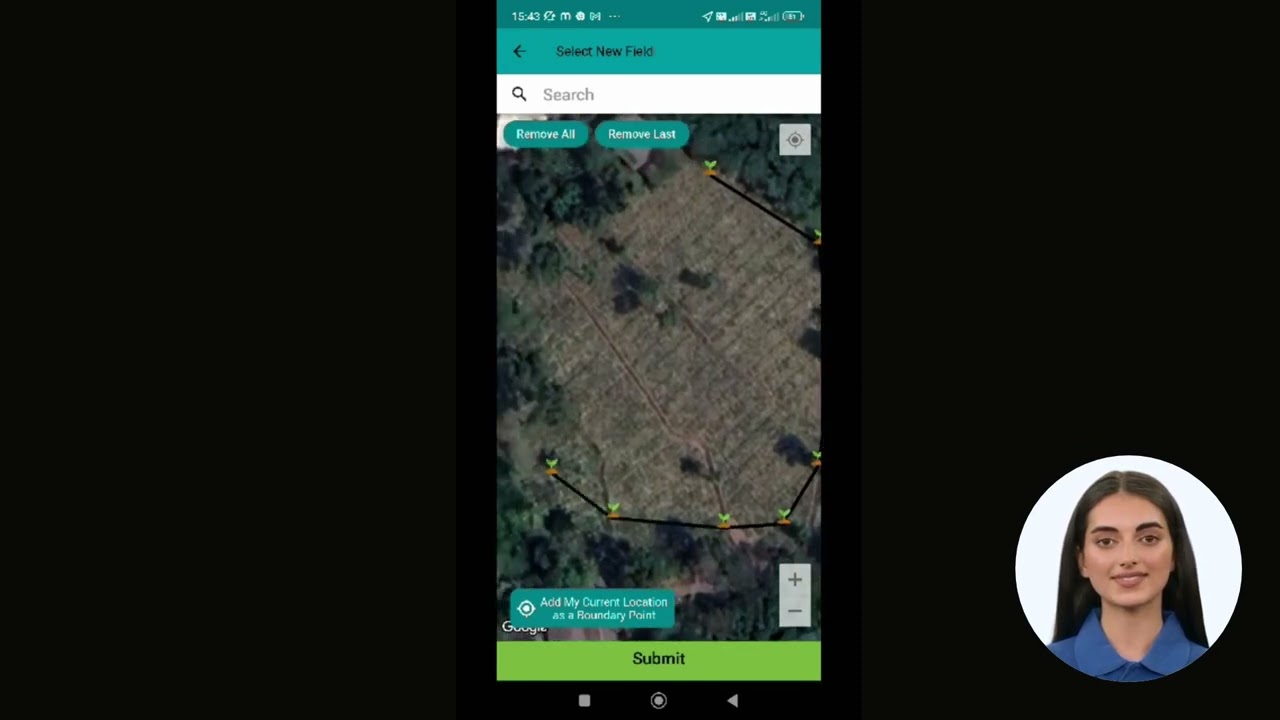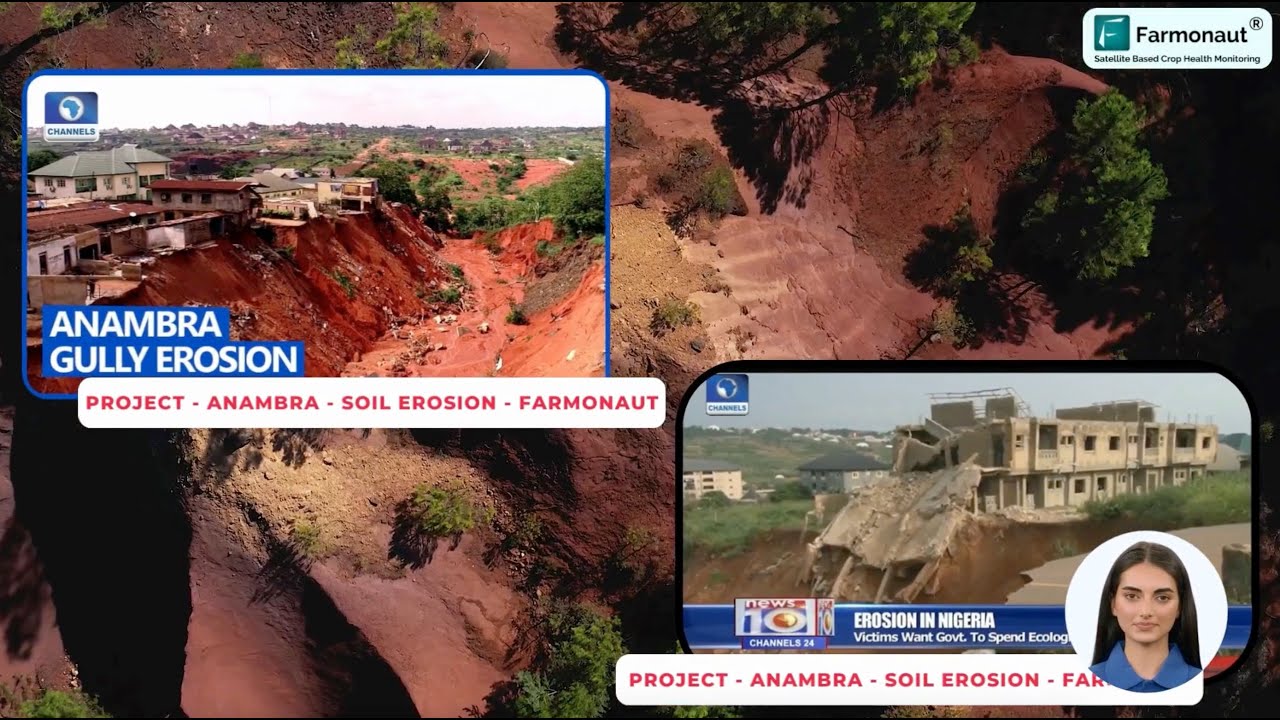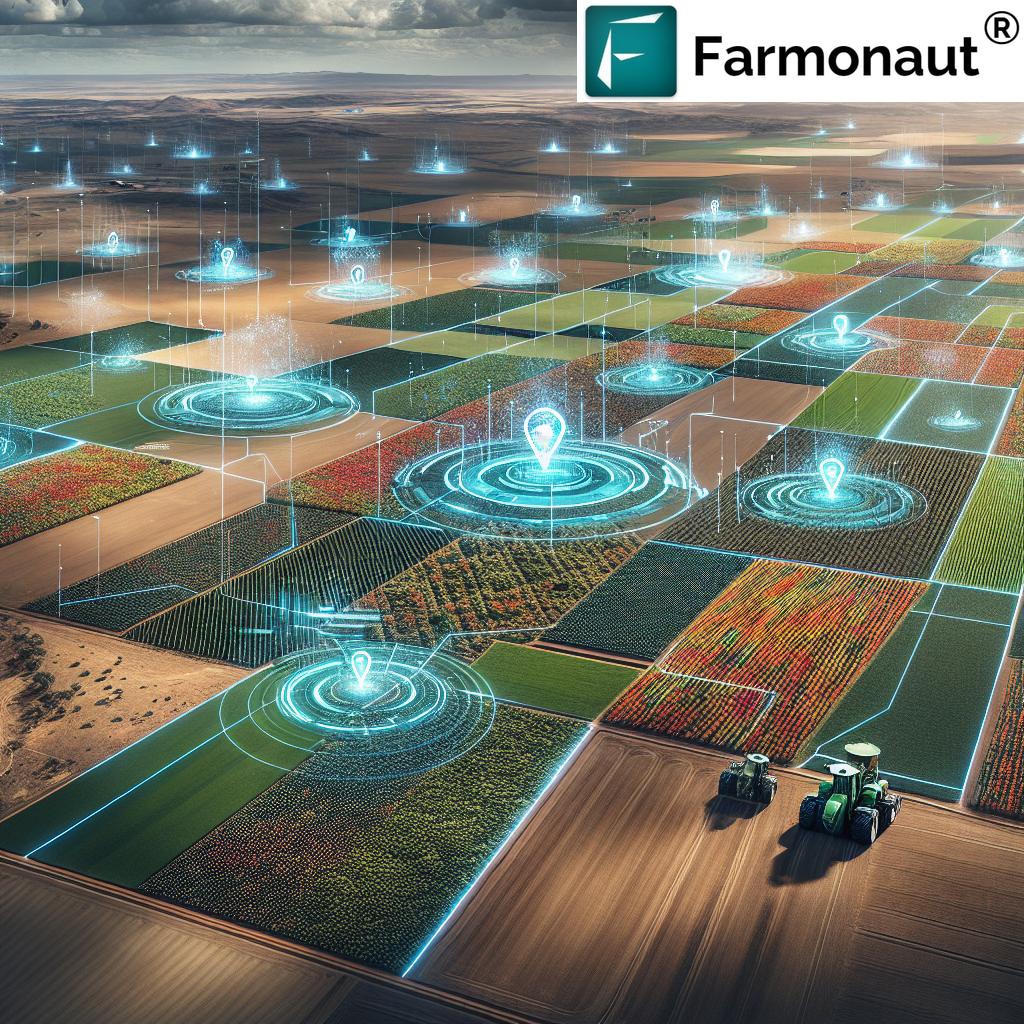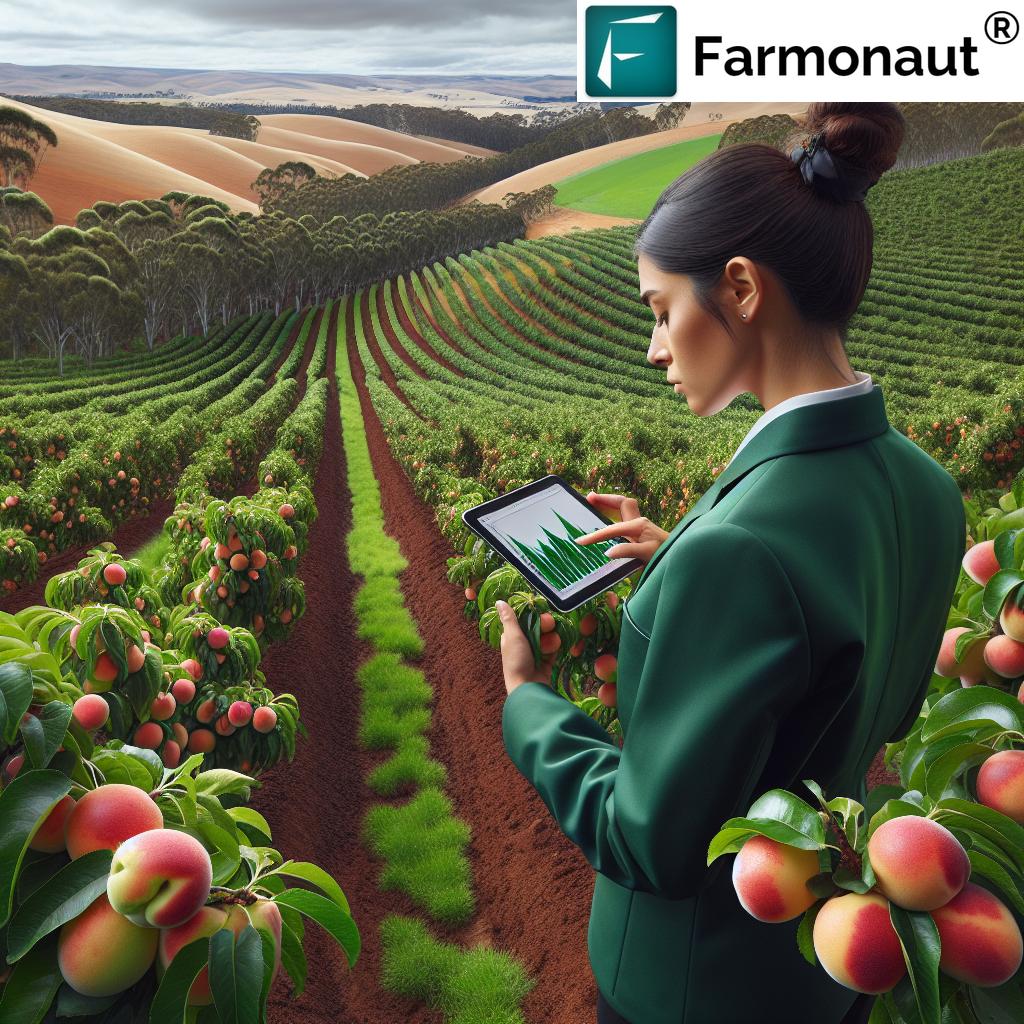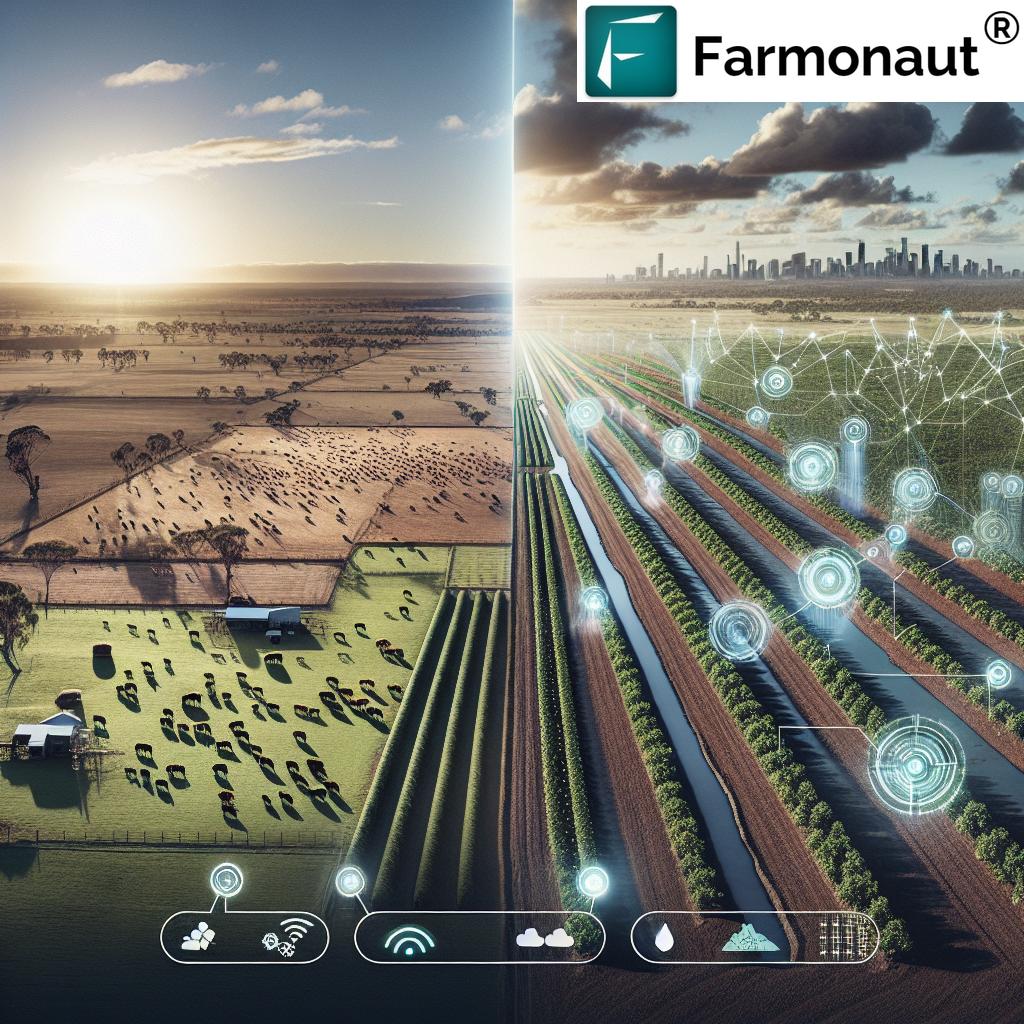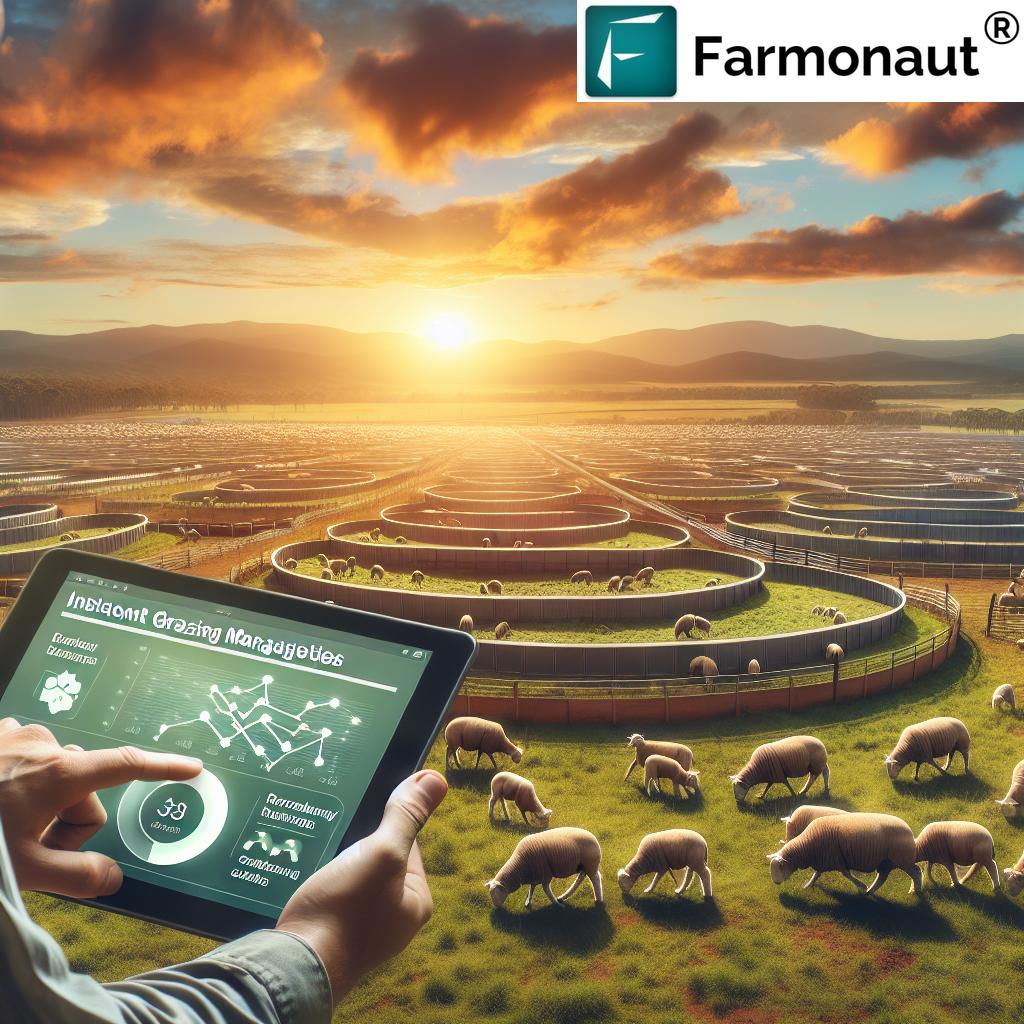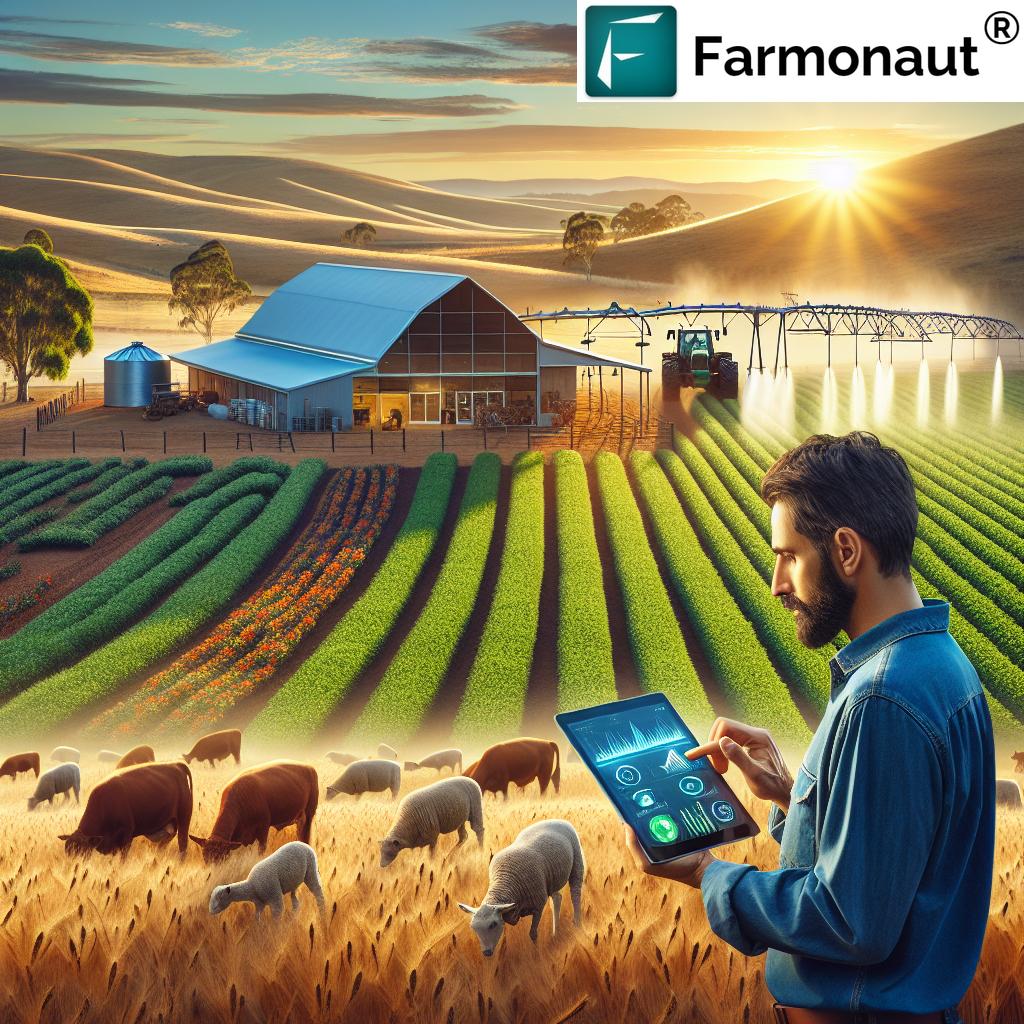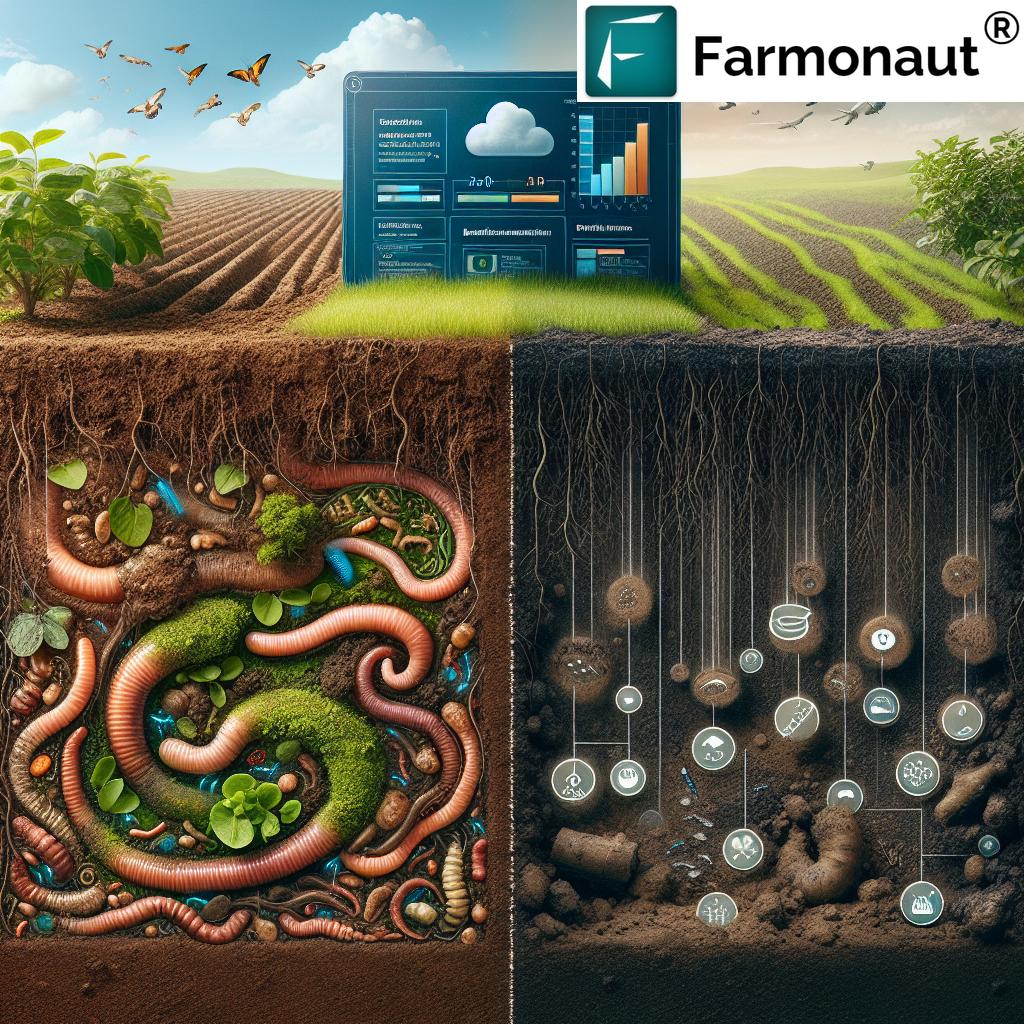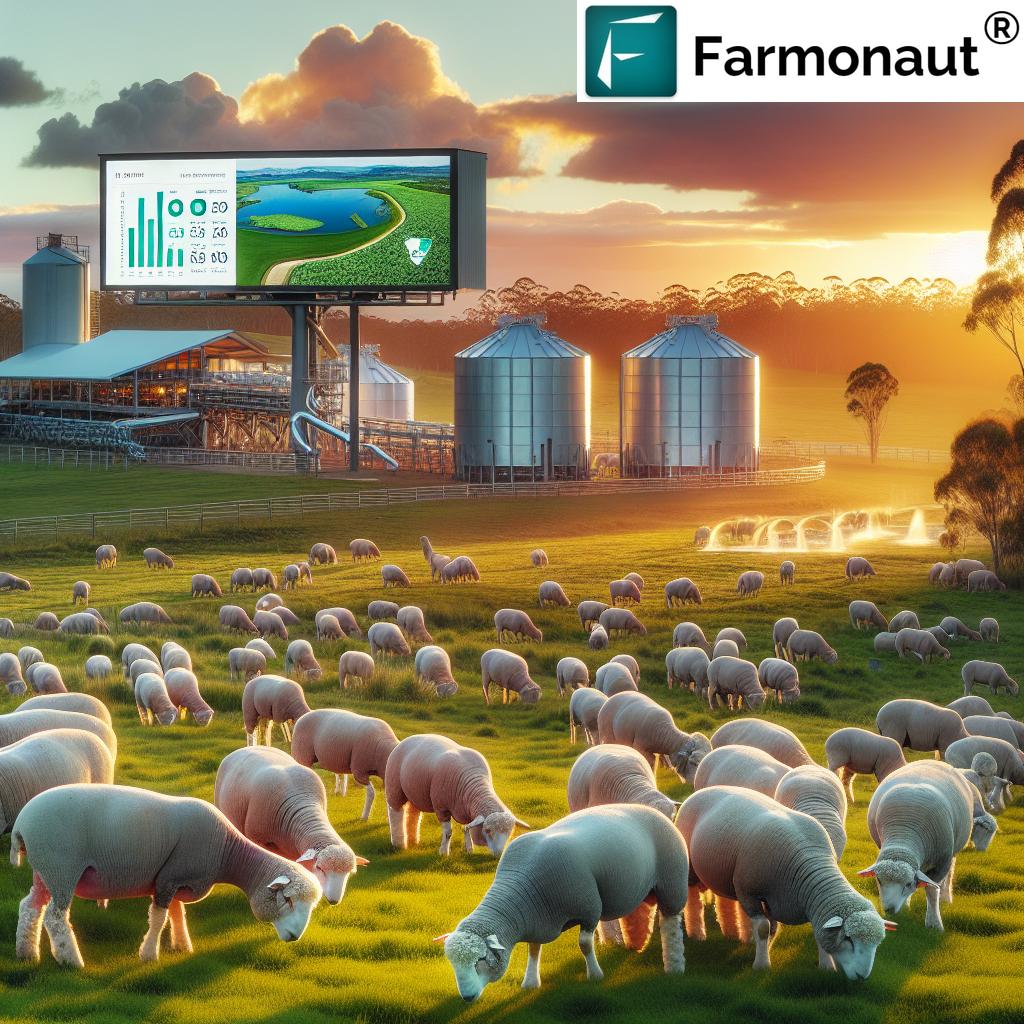Unlock Your Agricultural Career: Diploma Programs and Training Courses in South Australia’s Barossa Valley
“Over 70% of Barossa Valley agriculture students combine diploma programs with hands-on family farm experience.”
Welcome to the heart of South Australia’s agricultural education landscape! In this comprehensive guide, we’ll explore the diverse world of agriculture diploma programs and agribusiness training courses that are shaping the future of farming in the picturesque Barossa Valley. Join us as we embark on a journey through the eyes of a young farmer pursuing a Diploma of Agriculture while working on a family farm in this renowned wine region.
The Barossa Valley: A Hub for Agricultural Excellence
Nestled in South Australia, the Barossa Valley is not just famous for its world-class wines but also for its rich agricultural heritage. This region has become a beacon for aspiring farmers and agricultural professionals, offering a unique blend of traditional farming wisdom and cutting-edge agricultural technology courses.

The valley’s diverse landscape provides an ideal setting for hands-on learning, where students can immerse themselves in various aspects of agriculture and horticulture. From vineyards to orchards, and from livestock farms to crop fields, the Barossa Valley offers a living laboratory for agricultural education.
Agriculture Diploma Programs: Bridging Theory and Practice
At the core of agricultural education in the Barossa Valley are the comprehensive diploma programs that blend theoretical knowledge with practical skills. These programs are designed to equip students with the tools they need to succeed in modern agriculture.
- Diploma of Agriculture: This cornerstone program covers a wide range of topics, including crop management, livestock husbandry, sustainable farming practices, and agricultural technology.
- Diploma of Agribusiness Management: Focused on the business side of farming, this course prepares students for the commercial aspects of agriculture.
- Certificate IV in Agriculture: A stepping stone to higher qualifications, this course provides foundational knowledge in farm operations and management.
These programs are tailored to meet the needs of both fresh high school graduates and experienced farmers looking to upgrade their skills. The curriculum is regularly updated to reflect the latest advancements in agricultural science and technology.
Agribusiness Training Courses: Cultivating Business Acumen
In today’s competitive agricultural landscape, farming is as much about business as it is about cultivation. Agribusiness training courses in the Barossa Valley focus on developing the entrepreneurial skills necessary for successful farm management.
- Financial Management for Farmers: Learn to budget, forecast, and manage farm finances effectively.
- Agricultural Marketing Strategies: Understand market dynamics and develop strategies to sell farm produce profitably.
- Supply Chain Management in Agriculture: Master the complexities of getting products from farm to market efficiently.
These courses are often offered as short-term modules, allowing working farmers to upskill without committing to full-time study. They play a crucial role in transforming traditional farmers into savvy agribusiness professionals.
Horticulture Education Australia: Nurturing Green Thumbs
The Barossa Valley’s rich horticultural tradition is reflected in its educational offerings. Horticulture education in Australia, particularly in this region, focuses on both ornamental and productive plant cultivation.
- Diploma of Horticulture: A comprehensive program covering plant science, landscape design, and nursery management.
- Certificate III in Production Horticulture: Specializes in growing fruits, vegetables, and nuts, aligning closely with the region’s agricultural needs.
- Viticulture Courses: Given the Barossa’s wine industry, specialized courses in grape growing and vineyard management are popular.
These programs often include practical components where students work in local nurseries, vineyards, and orchards, gaining hands-on experience in plant care and production.
Agricultural Career Development: Pathways to Success
Career development in agriculture is a continuous journey. The Barossa Valley’s educational institutions work closely with local farms, agribusinesses, and industry bodies to create clear pathways for students.
- Internship Programs: Many courses include internship components, allowing students to gain real-world experience on working farms.
- Mentorship Schemes: Pairing students with experienced farmers for guidance and networking opportunities.
- Industry Workshops: Regular workshops with agricultural experts keep students updated on the latest trends and technologies.
These initiatives ensure that graduates are not just academically qualified but also industry-ready, with a network of contacts and practical experience to draw upon as they embark on their careers.
Farm Management Skills: The Core of Agricultural Education
Effective farm management is the cornerstone of successful agriculture. Courses in the Barossa Valley place a strong emphasis on developing comprehensive farm management skills.
- Resource Management: Learn to efficiently allocate land, water, and labor resources.
- Risk Management: Understand and mitigate agricultural risks, from weather fluctuations to market volatility.
- Technology Integration: Master the use of farm management software and precision agriculture tools.
Students are often required to develop and present farm management plans as part of their coursework, simulating real-world scenarios they’ll face in their careers.
“Australian agricultural diploma programs cover at least 5 key areas: agronomy, farm management, sustainability, technology, and indigenous practices.”
Agronomy Education Resources: Cultivating Crop Expertise
Agronomy, the science of soil management and crop production, is a critical component of agricultural education in the Barossa Valley. Students have access to a wealth of resources to develop their expertise in this field.
- Soil Science Laboratories: State-of-the-art facilities for soil analysis and research.
- Experimental Crop Fields: Hands-on experience with various crops and cultivation techniques.
- Digital Libraries: Access to the latest research papers and agricultural journals.
Agronomy courses cover topics such as soil fertility, crop rotation, pest management, and irrigation techniques, all tailored to the unique climate and soil conditions of South Australia.
Rural Training Opportunities: Bringing Education to the Farm
Recognizing the challenges faced by rural students, many institutions in the Barossa Valley offer flexible learning options and rural training opportunities.
- Distance Learning Programs: Online courses that allow students to study while working on their farms.
- Mobile Training Units: Educators travel to remote areas to provide on-site training and workshops.
- Weekend Intensive Courses: Concentrated learning sessions designed to fit around farming schedules.
These initiatives ensure that geographical location is not a barrier to accessing quality agricultural education.
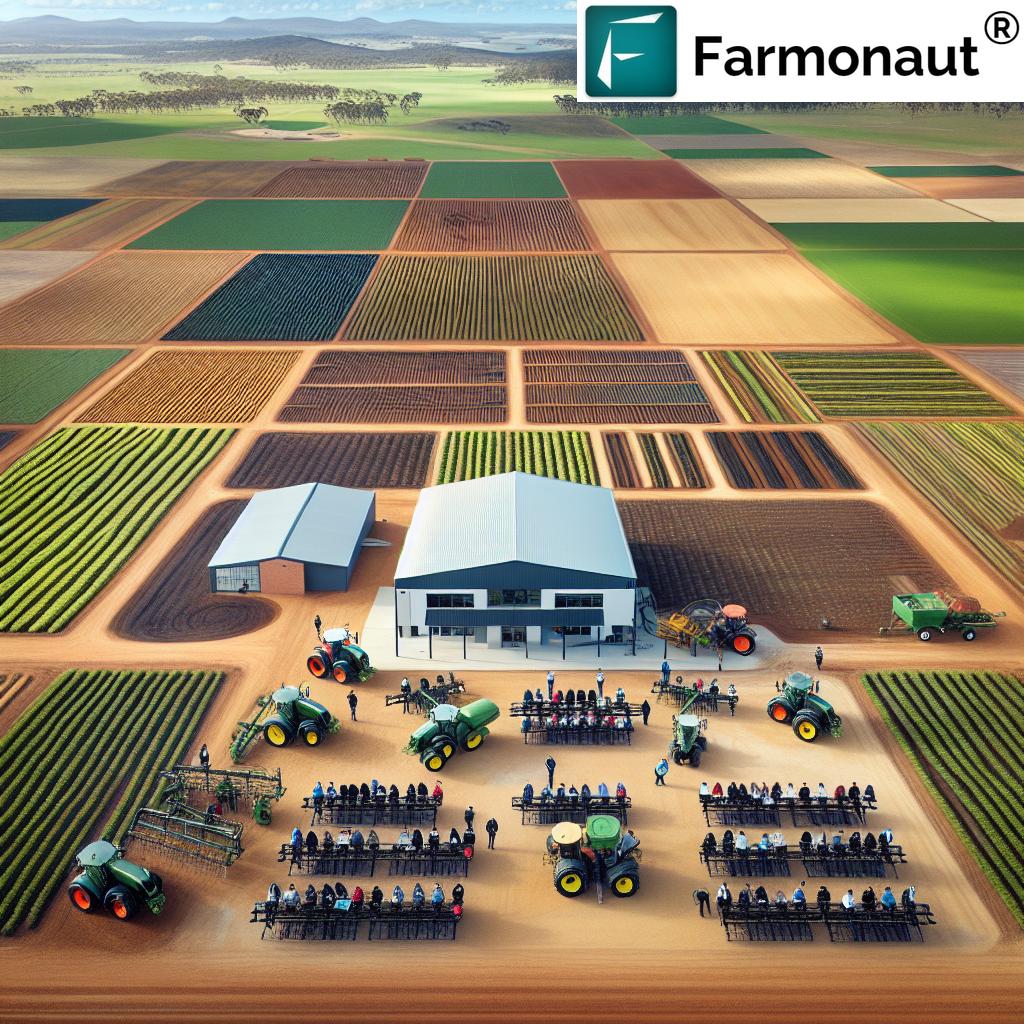
Sustainable Farming Practices: A Focus on the Future
Sustainability is at the forefront of agricultural education in the Barossa Valley. Courses emphasize environmentally friendly farming methods that preserve the land for future generations.
- Organic Farming Techniques: Learn chemical-free pest control and soil enrichment methods.
- Water Conservation: Explore efficient irrigation systems and water management strategies.
- Biodiversity Preservation: Understand the importance of maintaining ecological balance in agricultural lands.
Students are encouraged to develop innovative sustainable farming projects, often collaborating with local environmental groups and conservation experts.
Agricultural Technology Courses: Embracing the Digital Farm
The integration of technology in agriculture is revolutionizing the industry. Agricultural technology courses in the Barossa Valley prepare students for this digital transformation.
- Drone Technology in Agriculture: Learn to use drones for crop monitoring and precision spraying.
- IoT in Farming: Explore the use of sensors and smart devices in farm management.
- Big Data Analytics: Understand how to interpret and use agricultural data for decision-making.
These courses often involve partnerships with tech companies, giving students access to the latest agricultural technologies. For instance, Farmonaut offers advanced satellite-based farm management solutions that students can explore as part of their coursework.
Precision Agriculture Training: Fine-Tuning Farming Techniques
Precision agriculture is transforming farming practices, allowing for more efficient use of resources and higher yields. Training in this area is a key component of agricultural education in the Barossa Valley.
- GPS and GIS Technologies: Learn to use geographical information systems for farm planning and management.
- Variable Rate Technology: Understand how to apply inputs like fertilizers and pesticides with precision.
- Yield Mapping: Master the techniques of creating and interpreting yield maps for improved crop management.
Students often have the opportunity to work with cutting-edge precision agriculture tools, including those offered by companies like Farmonaut, which provides satellite-based crop health monitoring and AI-driven advisory systems.
Indigenous Agricultural Practices: Honoring Traditional Knowledge
In recognition of Australia’s rich indigenous heritage, many agricultural programs in the Barossa Valley incorporate traditional Aboriginal and Torres Strait Islander farming practices.
- Bush Tucker Cultivation: Learn about native Australian plants and their cultivation techniques.
- Traditional Land Management: Explore indigenous methods of sustainable land use and conservation.
- Cultural Awareness in Agriculture: Understand the spiritual and cultural significance of land in indigenous communities.
These courses often involve collaborations with local indigenous elders, fostering respect for traditional knowledge and promoting reconciliation through agriculture.
Continuous Learning in Agriculture: Staying Ahead of the Curve
The agricultural sector is constantly evolving, and continuous learning is essential for success. The Barossa Valley’s educational institutions offer various opportunities for ongoing professional development.
- Short Courses and Workshops: Regular sessions on specific topics like new crop varieties or emerging pest control methods.
- Industry Conferences: Annual gatherings where students can learn from and network with industry leaders.
- Online Learning Platforms: Access to digital resources for self-paced learning and skill enhancement.
These continuous learning opportunities ensure that farmers and agricultural professionals in the Barossa Valley remain at the forefront of their field.
Agricultural Education Programs in South Australia’s Barossa Valley
| Program Name | Duration | Focus Areas | Practical Components | Career Prospects |
|---|---|---|---|---|
| Diploma of Agriculture | 2 years | Crop Management, Livestock Husbandry, Farm Technology | 500 hours on-farm placement | Farm Manager, Agricultural Consultant |
| Agribusiness Training | 6 months | Financial Management, Marketing, Supply Chain | 200 hours business project | Agribusiness Manager, Rural Financial Advisor |
| Precision Agriculture Course | 1 year | GPS/GIS, Drone Technology, Data Analytics | 300 hours tech-based fieldwork | Precision Agriculture Specialist, Ag-Tech Consultant |
| Indigenous Agriculture Program | 1 year | Traditional Farming Methods, Bush Tucker, Cultural Land Management | 400 hours community-based projects | Indigenous Land Manager, Cultural Liaison Officer |
The Role of Technology in Modern Agricultural Education
Technology is not just a subject of study in agricultural education; it’s also a powerful tool for learning. In the Barossa Valley, students benefit from various technological resources that enhance their educational experience.
- Virtual Reality Farm Simulations: Practice farm management in virtual environments.
- Mobile Apps for Field Studies: Use smartphones for data collection and analysis during fieldwork.
- Online Collaboration Platforms: Connect with peers and experts worldwide for knowledge sharing.
For instance, students can use apps like Farmonaut’s Android app or iOS app to practice satellite-based crop monitoring and learn about precision agriculture techniques.
Integrating Research and Education in Agriculture
The Barossa Valley’s agricultural education programs are closely linked with ongoing research in the field. This integration ensures that students are exposed to the latest developments and contribute to advancing agricultural knowledge.
- Research Projects: Students often participate in ongoing research studies, gaining valuable experience in scientific methods.
- Industry Partnerships: Collaborations with agricultural companies provide insights into real-world applications of research findings.
- Innovation Incubators: Some institutions host agricultural innovation centers where students can develop and test new farming ideas.
These research opportunities not only enhance learning but also prepare students for careers in agricultural research and development.
The Future of Agricultural Education in the Barossa Valley
As we look to the future, agricultural education in the Barossa Valley is poised to evolve further, addressing global challenges and embracing new opportunities.
- Climate Change Adaptation: Increased focus on farming techniques resilient to changing climate patterns.
- Biotechnology in Agriculture: Expanding courses on genetic modification and plant breeding technologies.
- Global Agricultural Markets: Preparing students for international trade and cross-border agricultural businesses.
The region’s educational institutions are committed to staying ahead of these trends, ensuring that graduates are well-prepared for the future of agriculture.
Conclusion: Cultivating the Next Generation of Agricultural Leaders
The agricultural education landscape in South Australia’s Barossa Valley is rich and diverse, offering a wide range of opportunities for aspiring farmers and agricultural professionals. From hands-on diploma programs to specialized training courses, the region provides a comprehensive foundation for a successful career in agriculture.
By blending traditional farming wisdom with cutting-edge technology and sustainable practices, these educational programs are not just teaching skills – they’re cultivating the next generation of agricultural leaders. As the industry continues to evolve, the Barossa Valley stands ready to meet the challenges and opportunities of tomorrow’s agriculture.
Whether you’re a young farmer looking to enhance your skills, a career changer seeking new opportunities in agriculture, or an experienced farmer aiming to stay updated with the latest trends, the Barossa Valley’s agricultural education programs offer something for everyone. Embrace the opportunity to grow your knowledge, skills, and career in one of Australia’s most renowned agricultural regions.
FAQ Section
Q: What types of agricultural programs are available in the Barossa Valley?
A: The Barossa Valley offers a wide range of programs including Diploma of Agriculture, Agribusiness Training Courses, Horticulture Education, and specialized courses in viticulture, precision agriculture, and sustainable farming practices.
Q: How long does it typically take to complete an agriculture diploma program?
A: Most agriculture diploma programs in the Barossa Valley take about 2 years to complete, but there are also shorter certificate courses and longer advanced diploma options available.
Q: Are there opportunities for hands-on learning in these programs?
A: Yes, hands-on learning is a crucial component of agricultural education in the Barossa Valley. Many programs include on-farm placements, practical workshops, and field studies.
Q: Can I study agriculture part-time while working on my family farm?
A: Absolutely! Many institutions offer flexible learning options, including part-time study, online courses, and weekend intensives to accommodate working farmers.
Q: What career opportunities are available after completing an agricultural program in the Barossa Valley?
A: Graduates can pursue careers as farm managers, agronomists, agricultural consultants, agribusiness professionals, or even start their own farming enterprises.
Q: Are there courses that focus on organic or sustainable farming practices?
A: Yes, sustainability is a key focus in many programs. There are specific courses and modules dedicated to organic farming, sustainable agriculture, and environmentally friendly farming practices.
Q: How do these programs incorporate new agricultural technologies?
A: Agricultural technology is integrated into most programs, with courses covering topics like precision agriculture, drone technology, GPS mapping, and data analytics. Students often have access to the latest agtech tools and software.
Q: Are there opportunities to learn about indigenous farming practices?
A: Yes, many programs in the Barossa Valley incorporate modules on traditional Aboriginal and Torres Strait Islander farming practices, promoting cultural awareness and sustainable land management techniques.
Q: What financial assistance options are available for students?
A: Students may be eligible for various forms of financial assistance, including government loans, scholarships, and grants specifically for agricultural education. It’s best to check with individual institutions for specific options.
Q: Can international students enroll in these agricultural programs?
A: Many institutions welcome international students. However, specific requirements and visa conditions apply. International students should contact the educational institutions directly for detailed information.
Embark on your agricultural journey in the Barossa Valley today and cultivate a bright future in this dynamic and essential industry!
For developers interested in integrating agricultural data into their own applications, check out Farmonaut’s API and the comprehensive API Developer Docs.



